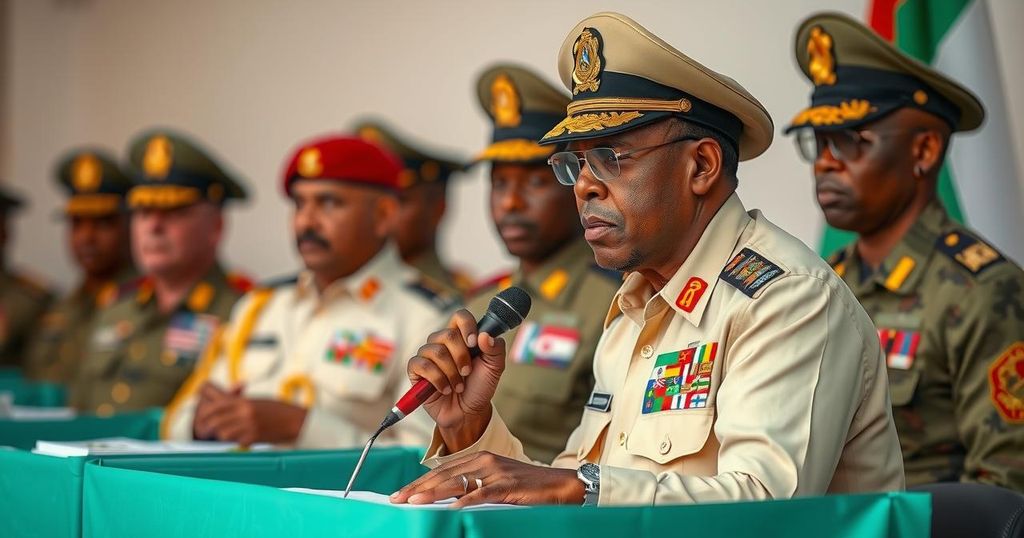Chad Votes in General Election as Opposition Calls for Boycott
Chad conducted a general election amidst three years of military rule, with low voter turnout anticipated following an opposition boycott call. Reports indicated about 38% participation, as opposition leaders denounced the elections as predetermined. The government is promoting the election as crucial for a transition to democracy while facing ongoing security threats.
Chad held a general election on Sunday, a moment the government claims is crucial for moving away from military governance following three years of army rule. However, the anticipated voter turnout was low, with reports indicating a participation rate of merely 38%. This lack of engagement came after opposition factions vigorously advocated for a boycott, asserting that the election results had already been predetermined.
In a statement to the press, Succes Masra, leader of the opposition Transformers Party, declared that, “They have all stayed at home following our call, that is, the overwhelming majority.” He highlighted that many citizens viewed the election as a predetermined outcome, discouraging them from participating. Observers noted that candidates aligned with President Mahamat Idriss Deby Itno, who initially ascended to power through military means and claimed legitimacy in a contested presidential election earlier this year, would likely be favored in this electoral process.
President Deby urged voter participation, describing the election day as a “historic day” and shared his own voting experience on social media. He emphasized the importance of civic engagement, despite the palpable disinterest among voters. Additionally, the election faced skepticism from individuals like Herve Natouingan, who stated, “There’s no real voting in Chad,” illustrating a broader disillusionment with the electoral system.
Significant dynamics also emerged among traditionally engaged voter groups such as military personnel and nomadic communities, who are believed to have had higher participation rates under logistical accommodations made prior to the elections. The election management agency noted record turnouts among these demographics, without genuine reflection of the broader electorate’s engagement.
Furthermore, the election unfolded against a backdrop of heightened security threats, particularly from Boko Haram, alongside geopolitical tensions related to France and neighboring Sudan. Despite the challenges, the government characterized this election as a critical final step towards a democratic transition, following the death of long-time ruler Idriss Deby in 2021.
The general election in Chad represents a significant political moment after a prolonged period of military rule. The country has been under the governance of President Mahamat Idriss Deby Itno since April 2021, following the death of his father, Idriss Deby, who had ruled for 30 years. Amidst an environment marked by skepticism and electoral fatigue, the government is positioning the election as a pivotal move towards restoring democratic governance. However, widespread calls for boycotts by opposition groups indicate a deep-seated distrust in the electoral process, with claims that results have been predetermined, thereby undermining the legitimacy of the election itself. The election’s context is further complicated by ongoing violence from Boko Haram and other regional conflicts, which continue to affect the nation’s stability and progression towards democracy.
In summary, Chad’s general election serves as a barometer for public sentiment towards the current regime, amid calls for a boycott from opposition parties who view the election as a foregone conclusion. Despite government assurances of a transition to democracy, widespread apathy and skepticism were evident in the low voter turnout, illustrating the challenges faced in restoring faith in the electoral process. The unfolding political landscape in Chad remains closely intertwined with security concerns and historical governance issues, posing significant challenges and questions for the future of democracy in the country.
Original Source: www.kpvi.com




Post Comment